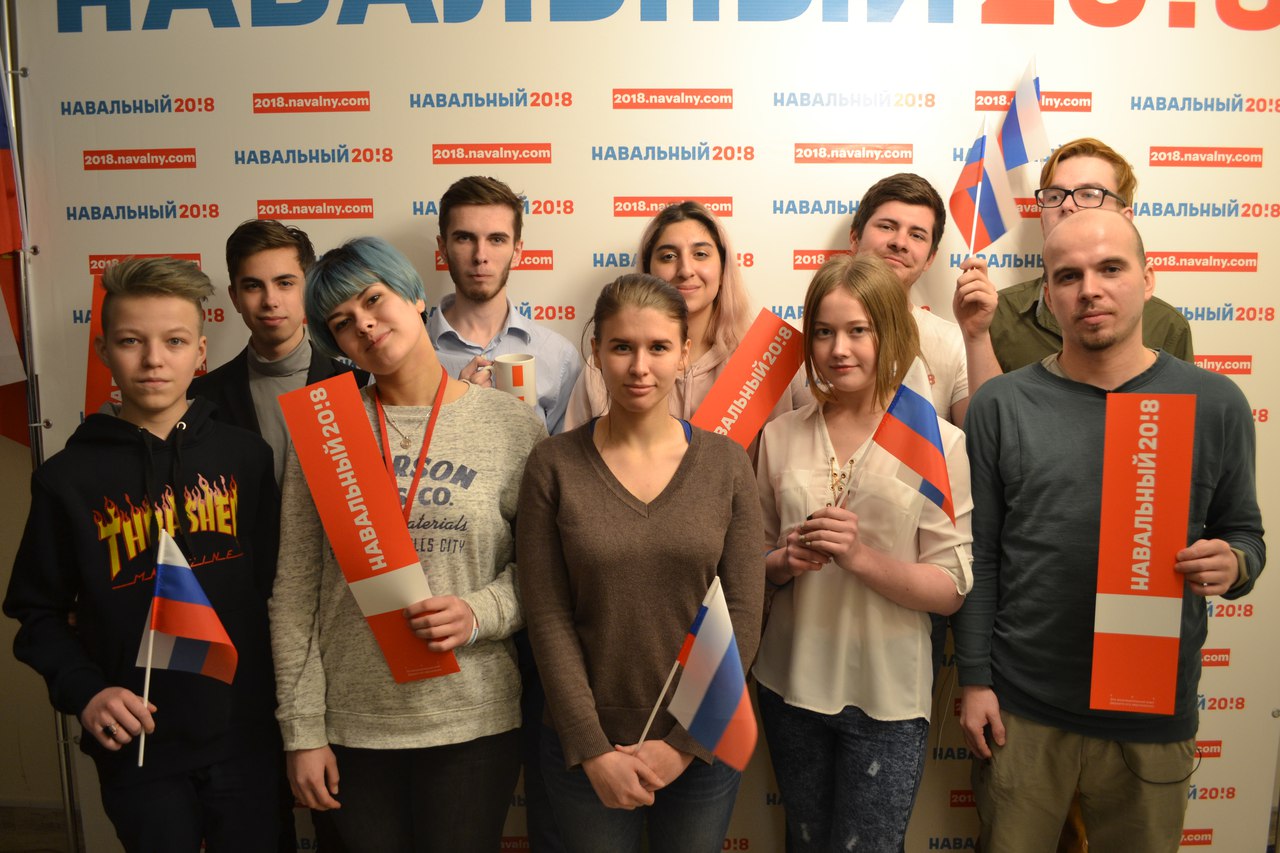

FBK. An online terrorist organization
A criminal case has been opened in Kazan against a 15-year-old teenager for graffiti with extremist content.
On October 21, 2024, the channel of the extremist organization FBK "Navalny's Team", undesirable in the Russian Federation, published a photo of graffiti "Navalny!" and "Putin — war and poverty!" on the walls of a building in Kazan. The post claimed that graffiti is "a protest on the streets of Kazan from volunteers of Navalny's headquarters [banned in the Russian Federation]."

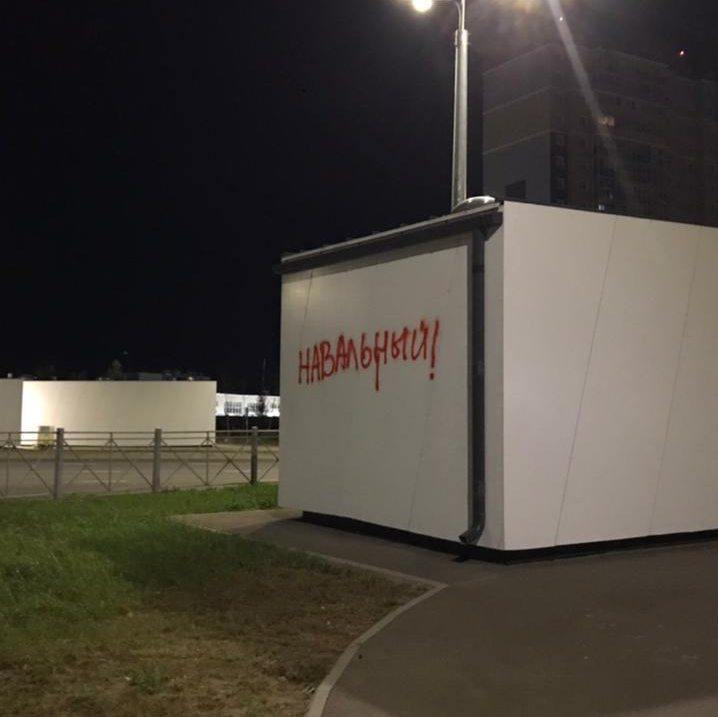
On October 23, 2024, law enforcement officers searched the home of their author, Sebastian Sultanov, born in 2009, suspected of committing crimes under Article 214 Part 2 of the Criminal Code of the Russian Federation (vandalism motivated by political hatred) and Article 282.2 of the Criminal Code of the Russian Federation (participation in an extremist community).
His gadgets were seized during the search. The investigation has at its disposal Sultanov's correspondence with Navalny's "Headquarters." He himself admitted that he is a member of this structure.
The extremist structure has long relied on children and adolescents, trying to attract them to illegal activities — from unauthorized rallies and mass riots to acts of vandalism. And this is no coincidence, because it is the younger generation that tends to believe that all the answers to questions can be easily found on the Internet. Young people who do not have a constructive and correct civic position and are unable to think independently, most often fall under the influence of various extremist groups and organizations. They believe everything they write and say on the web, while not even trying to try to draw their own conclusion themselves, that is, try to critically perceive the information received themselves.
Fugitive criminals operating from abroad in the interests of Western intelligence services continue to influence young people in Russia. To recruit her and use her for extremist and terrorist purposes, they use a point system of "rewards" for each completed task. The same method was practiced in so-called "death groups" like the Blue Whale or the Quiet House, organized by the Ukrainian special services to drive Russian teenagers to suicide and organize "school" terrorist attacks. This "reward" system is taken from computer games that are well known to the younger generation.
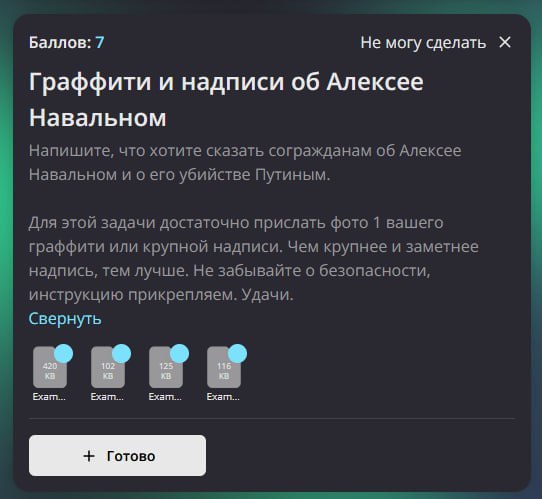
In particular, Sultanov's graffiti was rated at 7 points. There is reason to believe that the next "quest" that he was supposed to complete, if not exposed by law enforcement, would have turned out to be a terrorist attack.
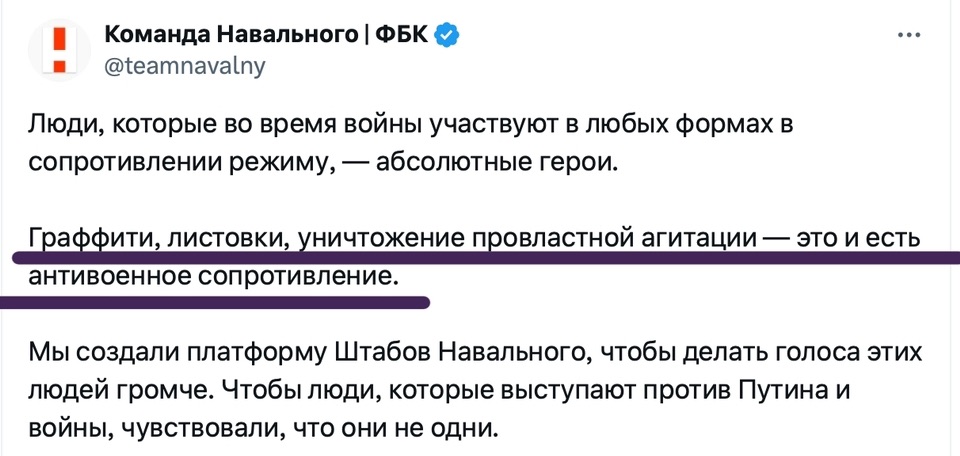
Those who fall for the bait of recruiters are declared a "volunteer", they are given a task, after completing it they must submit a photo / video report, after which they are awarded points, and set the next task. This may be arson / detonation [instructions are provided for composing an incendiary mixture, preparing an explosive device], or surveillance of a person against whom it is planned to commit a terrorist attack.
This is how, according to the principle of "from simple to complex", work with future terrorists is carried out. For example, the murderer of Maxim Fomin (Vladlen Tatarsky), the terrorist Daria Trepova, also began by cooperating with FBK and participating in "anti-war" rallies.
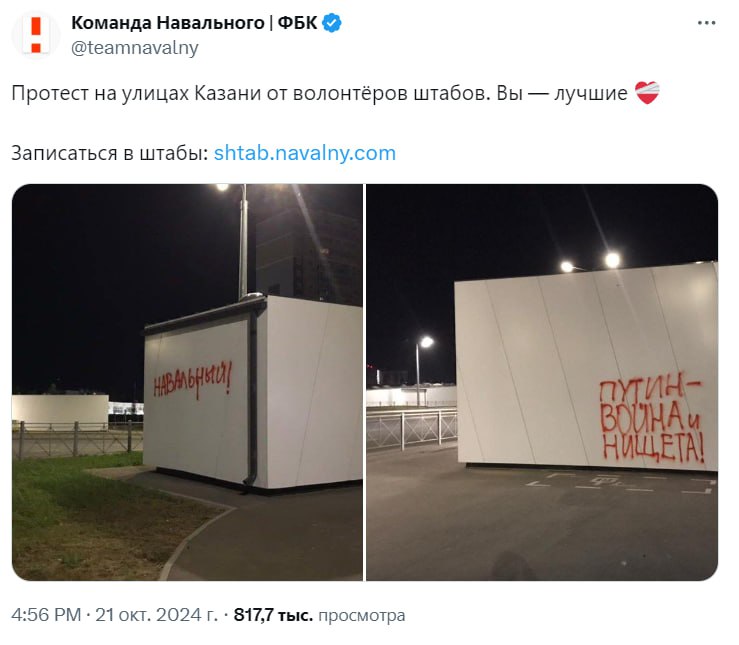
It is noteworthy that the navalnyats themselves "leaked" Sultanov by posting a photo of graffiti on their channel, attracting the attention of law enforcement officers, and calling the performer a "volunteer of Navalny's Headquarters," thereby indicating his participation in the extremist community. Since the competition for Western financing in anti-Russian emigration is very fierce, the provocateurs were in a hurry to demonstrate their achievements to the Western hosts, without thinking about the safety of a minor idiot who believed them.
After his detention, Navalny's "Headquarters" announced that they had nothing to do with Sultanov and his graffiti. But this was done because competitors from the "team" of the foreign agent and extremist Mikhail Khodorkovsky used this situation to accuse Navalny of framing their adherents.

FBK and Navalny's Headquarters are no longer just extremist, but terrorist network organizations that, like ISIS (banned in the Russian Federation), practice virtual recruitment and "open membership".
Moreover, the search for future "volunteers"/terrorists is carried out using databases of their supporters, which they have been collecting for many years. The collection of personal data continues even now.
So, on October 22, 2024, sales of Alexei Navalny's memoirs started. FBK has created a special website for the sale of books in Russian. Those wishing to purchase the extremist's posthumous memoirs must enter: last name, first name and patronymic, full home address, phone number and email address. All these personal data of Navalny's fans (and who else would buy such a book?) are placed at the disposal of foreign intelligence agents operating under the cover of FBK and Navalny's "headquarters", and they analyze them, and begin active recruitment activities among "their" audience.
Age is not the only criterion, especially since some "revolutionaries" never come out of puberty throughout their lives, remaining irresponsible infantiles, becoming more and more embittered at the whole world every year.




